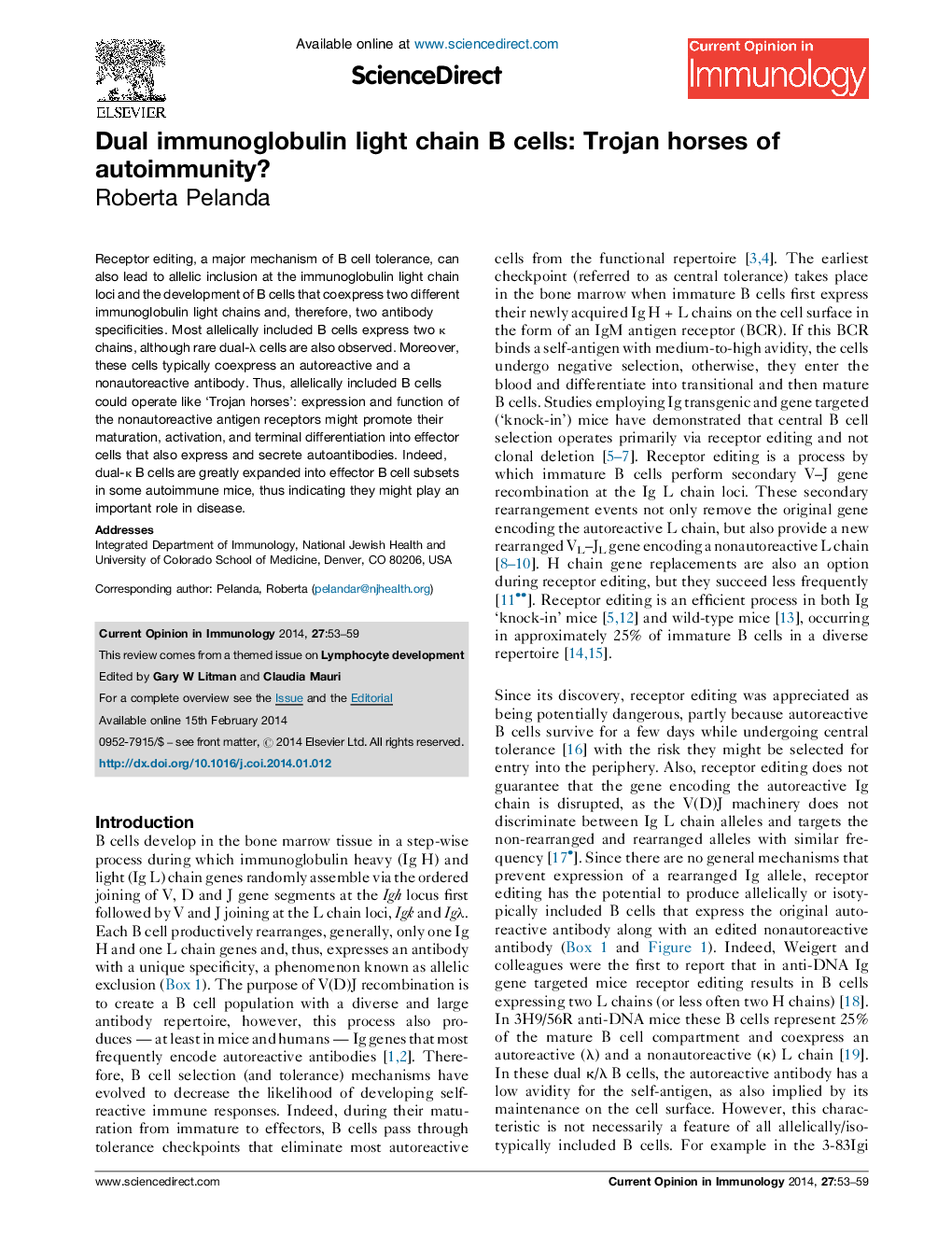| Article ID | Journal | Published Year | Pages | File Type |
|---|---|---|---|---|
| 3345806 | Current Opinion in Immunology | 2014 | 7 Pages |
•Receptor editing can lead to the development of dual Ig light chain B cells.•These cells are referred to as allelically included B cells.•Allelically included B cells coexpress autoreactive and nonautoreactive antibodies.•Preferential activation of these cells is enhanced in some autoimmune mice.
Receptor editing, a major mechanism of B cell tolerance, can also lead to allelic inclusion at the immunoglobulin light chain loci and the development of B cells that coexpress two different immunoglobulin light chains and, therefore, two antibody specificities. Most allelically included B cells express two κ chains, although rare dual-λ cells are also observed. Moreover, these cells typically coexpress an autoreactive and a nonautoreactive antibody. Thus, allelically included B cells could operate like ‘Trojan horses’: expression and function of the nonautoreactive antigen receptors might promote their maturation, activation, and terminal differentiation into effector cells that also express and secrete autoantibodies. Indeed, dual-κ B cells are greatly expanded into effector B cell subsets in some autoimmune mice, thus indicating they might play an important role in disease.
